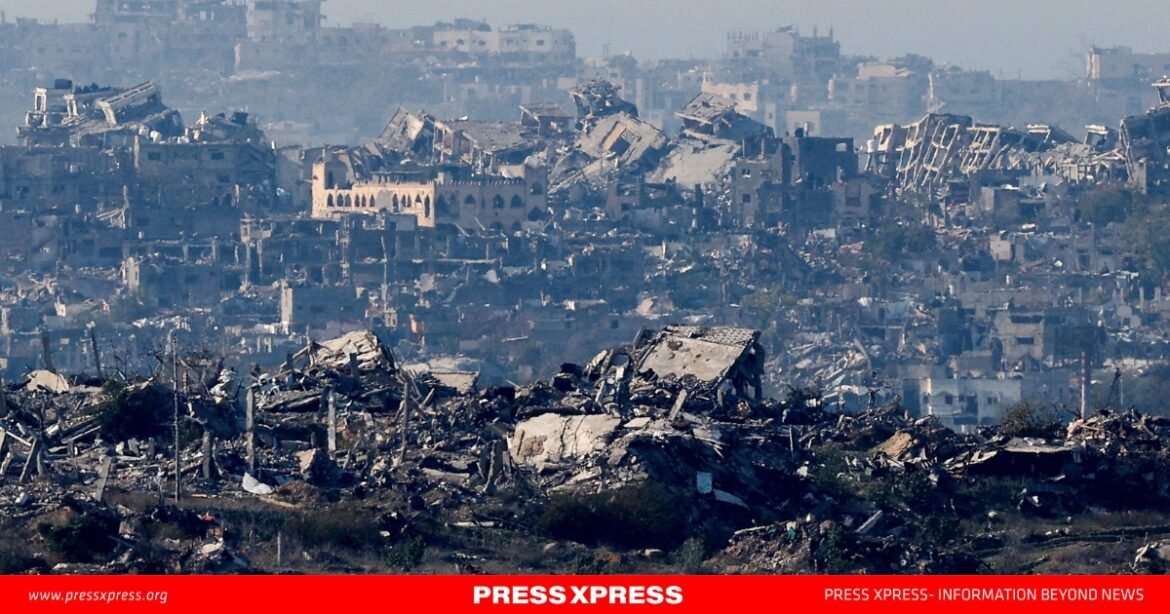The United Arab Emirates (UAE) has reportedly engaged in talks with Israel and the United States about participating in a transitional administration for Gaza once the war ends. According to sources familiar with the discussions, the UAE, the U.S., and potentially other nations may oversee governance, security, and reconstruction in Gaza until a reformed Palestinian Authority (PA) assumes control. These deliberations, revealed by Reuters, underscore the challenges of shaping Gaza’s future amidst persistent tensions.
Collaborative Vision Amid Uncertainty
The UAE, a close ally of the United States and one of the few Arab nations with diplomatic ties to Israel, holds a unique position in these negotiations. Its influence provides potential leverage over Israeli Prime Minister Benjamin Netanyahu’s administration. However, sources emphasized that the ideas discussed remain preliminary and have not been formalized into a concrete plan.
Central to the UAE’s proposals is the advocacy for a reformed PA that governs Gaza, the West Bank, and East Jerusalem as part of an independent Palestinian state. Such a vision, however, has faced resistance from Israel, which publicly opposes the PA in its current form.
Reforming the Palestinian Authority
A UAE official, responding to questions about the talks, stressed that meaningful reform of the PA is non-negotiable. “These elements—currently absent—are essential for the success of any post-Gaza plan,” the official said. Established under the Oslo Accords of the 1990s, the PA has limited authority over the West Bank and Gaza but lost control of Gaza to Hamas in 2007 following a brief civil war.
Amid calls for change, Emirati officials have criticized the PA’s governance as ineffective and corrupt. They have pointed to figures like Salam Fayyad, a U.S.-educated former World Bank official, as a model for leadership in a reformed PA. Fayyad, who served as PA prime minister until 2013, is viewed as a credible reformer, though no formal discussions with him have been confirmed.
The Role of Military Contractors
The UAE’s proposals also included the potential use of private military contractors as part of a peacekeeping force in post-war Gaza. This suggestion has sparked concerns among Western nations due to the controversial history of such contractors in conflict zones, including accusations of human rights abuses in Iraq and Afghanistan. Emirati officials declined to comment on these specifics.
Long Road to Reconstruction
Rebuilding Gaza is expected to be a massive, years-long endeavor, requiring billions of dollars in international aid. While the UAE has criticized Israel’s military conduct, Israeli officials reportedly see value in the oil-rich nation’s involvement in Gaza’s post-war recovery. Both Israel and the UAE share a mutual opposition to Hamas, which Abu Dhabi regards as a destabilizing force in the region.
Hamas, however, has rejected the prospect of foreign involvement. “After the war, Gaza must be distinctly Palestinian and free of external interventions,” said Basem Naim, a senior Hamas official.
Diplomatic Push for Ceasefire
As discussions on Gaza’s future continue, international efforts for a ceasefire remain stalled. The U.S., along with mediators Egypt and Qatar, has been pushing for a truce between Israel and Hamas. On Monday, U.S. Secretary of State Antony Blinken expressed hopes for a ceasefire deal within weeks, while emphasizing the need for long-term stability in the region.
Conclusion
The path forward for Gaza remains uncertain, with competing visions and unresolved tensions. While the UAE’s participation could signal a shift towards a more collaborative regional approach, the challenges of reforming the Palestinian Authority and navigating the sensitive dynamics of post-war governance loom large. For now, the international community awaits a viable plan that balances reconstruction, security, and political renewal for Gaza’s future.


